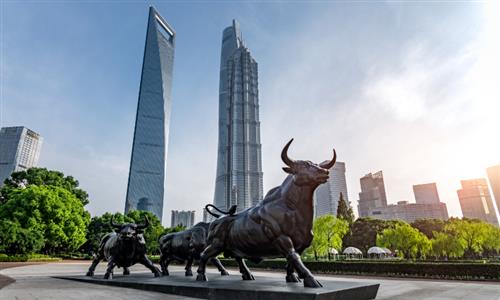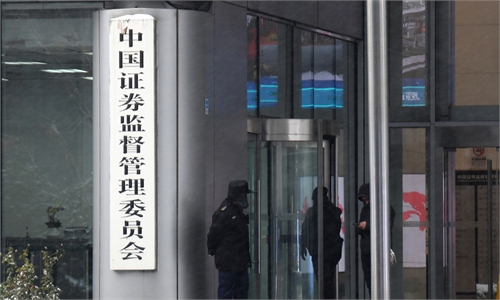
Illustration: Chen Xia/GT
Stocks in Hong Kong have regained momentum despite concerns over whether the market is somewhat overbought. The benchmark stock index has become a topic of heated discussion, giving people a new perspective on the city's integration into the motherland's overall development.
Hong Kong's Hang Seng Index gained 151.38 points, or 0.8 percent, to close at 19,115.06 points on Monday, the highest level since last August. The index has surged about 15 percent in the past month, making it one of the best-performing major indexes in the world.
Predicting the market's trajectory is challenging because the future is inherently unpredictable. The outlook appears robust, but some analysts worry that the market might be overbought, and a period of consolidation would be welcome.
It is normal for stocks to fluctuate frequently. This is not necessarily a bad thing, especially if the market undergoes consolidation in the near term. As long as the forces driving the rise in share prices remain, the market will likely continue its upward climb for the long run.
The increase in Hong Kong shares this year has been mainly led by technology stocks, artificial intelligence fever and the good performances of Chinese mainland companies listed in Hong Kong.
The Hang Seng China Enterprises Index, a benchmark that reflects the overall performance of mainland securities listed in Hong Kong, rose 0.64 percent on Monday to end at 6,761.64 points. The index has rebounded by more than 30 percent from its low in January.
In 1993, China's leading beer maker Tsingtao Brewery became the first Chinese mainland company to issue H-shares and list in Hong Kong, inaugurating an era of large-scale listings by mainland enterprises in the city. After 30 years of development, the number of mainland companies listed in Hong Kong had increased to more than 1,400 by 2023, accounting for 77 percent of the total market capitalization.
H-share listings provide overseas investors with access to mainland financial assets, enhancing both Hong Kong's role as a global finance hub and the long-term growth prospects of mainland capital markets. This represents an important step to boost interconnectedness between the mainland and Hong Kong.
Multiple measures have been implemented to facilitate mainland companies listing their shares in Hong Kong. In addition, Hong Kong is striving to enhance its position as the largest offshore yuan center, promote the launch of more yuan-denominated investment tools and provide stable, highly efficient treasury services.
These efforts will enable the city to serve as a key link between international capital entering the mainland and domestic capital going out to the world, ultimately supporting the steady growth and sustained prosperity of the Hong Kong stock market.
There is no need to read too much into short-term fluctuations in the stock market. What is needed is a rational analysis of the current situation to find the forces behind the rise in stock prices, and strengthen its push in those areas to win sustained prosperity.
The prosperity of the stock market may have significance as a reference for the city's economy. Mainland companies have served as a major driving force supporting the Hong Kong stock market, which can also apply to the Hong Kong economy.
While the world economy is clouded by upheavals and uncertainties, the mainland is creating new opportunities for businesses in its pursuit of high-quality development. Hong Kong should fully tap the potential. As the city's economy is closely connected to the mainland's, it will give Hong Kong strong backing and optimism and lend the city the economic boost it needs.
The author is a reporter with the Global Times. bizopinion@globaltimes.com.cn



